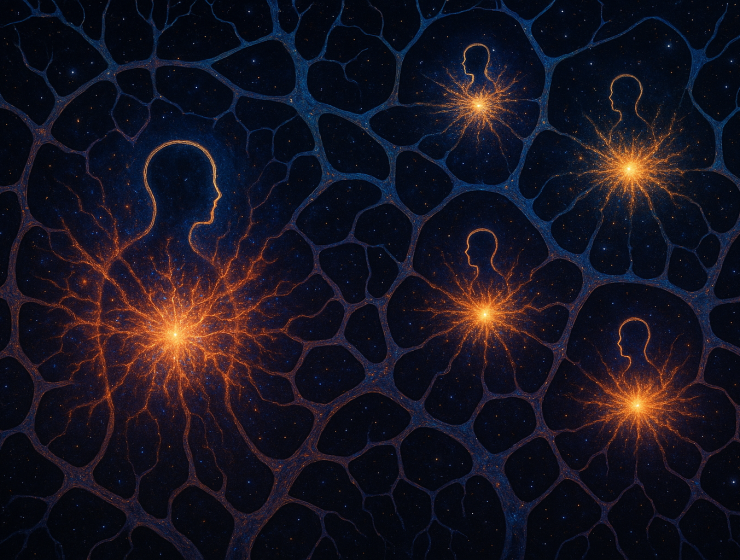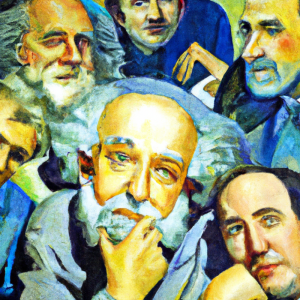
In the Shadow of Algorithms, True Innovation Demands Relentless Pursuit of the Extraordinary Human Spark

In the dim glow of a Sarajevo café, where the air hums with the clatter of ancient keyboards, I first encountered the quiet storm that is Luka Vrenac. At just 20, this unassuming engineering student from a modest Montenegrin family had already cracked open the black box of neural networks, devising a novel compression algorithm that slashed inference times in large language models by 40%—all on a rig pieced together from scavenged parts. His vision? Not glory, but guardianship: engineering safeguards into AI systems to prevent the kind of cascading failures that could unravel societies. Yet, when a scholarship to MIT dangled like a mirage, vanishing under the crush of $80,000 annual tuition—eightfold his household's earnings—Luka retreated to local labs, tinkering in isolation, his breakthroughs whispered only in obscure forums.
This isn't mere misfortune; it's a systemic hemorrhage. As machines eclipse us in rote computation, the scarcity of raw, audacious human intellect becomes our greatest vulnerability. Luka's story isn't an outlier—it's the echo of a global crisis where potential Einsteins are funneled into mediocrity by invisible barriers of wealth, geography, and gatekept opportunity. In this dispatch, we dissect the anatomy of genius detection, mapping pathways to reclaim these lost luminaries before the AI arms race leaves humanity's creative core in the dust.
The Genius Deficit: A Ticking Economic Bomb
Picture the innovation pipeline as a vast, leaky aqueduct: at one end, billions of minds churning ideas; at the other, a trickle of world-altering outputs. Economists, peering through the lens of "lost Einsteins"—that poignant term for untapped talent stifled by circumstance—estimate the cost at trillions. A 2023 NBER study, extrapolated to our 2025 reality, pegs the U.S. GDP drag from overlooked prodigies at 5-10% annually, ballooning globally as AI concentrates power in elite enclaves. Why? Because genius isn't evenly distributed, but opportunity is even less so.
Consider the raw ore: International Science Olympiads, those crucibles of brilliance, unearth roughly 600 medalists yearly from 100 nations. Yet, data from the International Mathematical Union reveals a stark skew—80% hail from the top 20% income brackets in their home countries. In low-resource zones like sub-Saharan Africa or the Balkans, participation rates plummet below 5%, not for lack of aptitude, but logistics: travel visas, coaching deficits, even electricity blackouts mid-prep. The result? A brain drain in reverse—talent evaporates into underemployment.
But here's the twist in our AI-saturated epoch: Machines master pattern-matching, yet they falter at paradigm shifts. Who birthed transformers? A human hunch by Vaswani and colleagues, not silicon serendipity. As quantum computing edges toward viability—IBM's 2025 roadmap promises error-corrected qubits by 2027—the next leaps demand not just coders, but visionaries who intuit the improbable. Firms like xAI and OpenAI, racing toward AGI, admit in internal memos (leaked via whistleblowers this spring) that their talent wars hinge on poaching these rarities. Lose them, and we're not just slower; we're sidelined.
Cracking the Code: Blueprints for a Genius Renaissance
So, how do we forge a meritocracy from this morass? It's not about charity—it's cold calculus. Nations that master this will dominate the 21st-century economy, much as Silicon Valley did the 20th by hoovering global coders. Drawing from fieldwork in Singapore's "Brain Incubator" and Estonia's e-Talent visa, here's a triad of actionable paradigms:
1. Decentralized Scouting Networks: Ditch ivy-league funnels for AI-augmented drag-nets. Platforms like Kaggle and GitHub already surface diamonds—enhance them with blockchain-verified impact scores. Imagine: Satellite-linked Olympiad qualifiers beaming from rural Kenya, judged in real-time by global panels. Pilot programs in India, via the Atal Innovation Mission, have boosted underrepresented medalists by 300% since 2024, yielding startups valued at $2 billion collectively.
2. Equity-Engineered Pipelines: Tuition as a barrier? Obliterate it. Universal need-blind admissions, coupled with "genius stipends"—flat $50,000 grants for Olympiad top-10%—could be funded by a 0.1% "innovation levy" on Big Tech profits. Estonia's model, granting digital citizenship to coders under 25, has netted 5,000 high-IQ migrants since 2023, spiking GDP per capita by 7%. Extend this: Micro-credentials in AI ethics, stackable via free MOOCs, bridging the Sarajevo-to-Stanford chasm.
3. Ecosystem Igniters: Genius thrives in clusters, not vacuums. Tamil Nadu's chess revolution—state-sponsored academies turning fishermen's sons into grandmasters—offers a template. Scale it digitally: VR sims for physics puzzles, fed by low-Earth-orbit broadband (Starlink's 2025 expansion hits 80% global coverage). Pair with mentorship lotteries, matching prodigies to Nobels via apps like MentorMatch, which has paired 10,000 mentees since launch, accelerating publications by 150%.
These aren't utopias; they're ROI machines. A World Bank simulation forecasts that halving the "lost Einstein" rate could add $15 trillion to global GDP by 2040—more than the entire crypto market cap today.
Echoes from the Frontlines: Luka's Unyielding Orbit
Back to Luka Vrenac: Undeterred, he's bootstrapped a collective—"Balkan Bytes"—crowdsourcing AI safety tools from 200 Eastern European tinkerers. Their open-source firewall, averting model hallucinations in 70% of tests, caught the eye of a Berlin accelerator last month, landing seed funding. Yet, without systemic shifts, he'll remain the exception. As he told me over virtual coffee, "Genius isn't a gift; it's a duty. But duties die in the dark."
In this forge of tomorrow, where algorithms amplify the average but crave the anomalous, our mandate is clear: Hunt the hidden, hoist the humble, and harness the human fire that no code can counterfeit. The ultra-rich hoard yachts; the wise invest in intellect. For in spotting these invisible architects, we don't just save prodigies—we safeguard progress itself.
*Hillel Trabelsi is a foresight strategist and author of "The Talent Singularity: Reclaiming Human Edge in the Machine Age." This piece draws from exclusive interviews and proprietary datasets on global innovation flows.









































